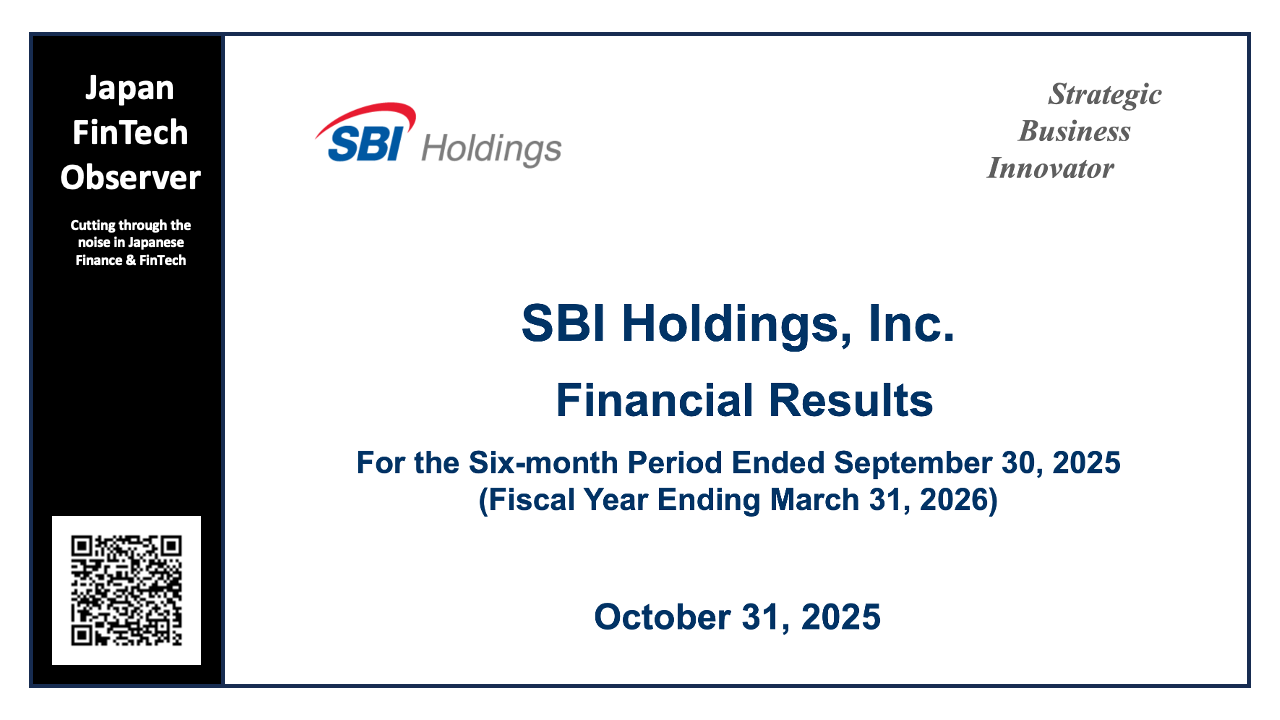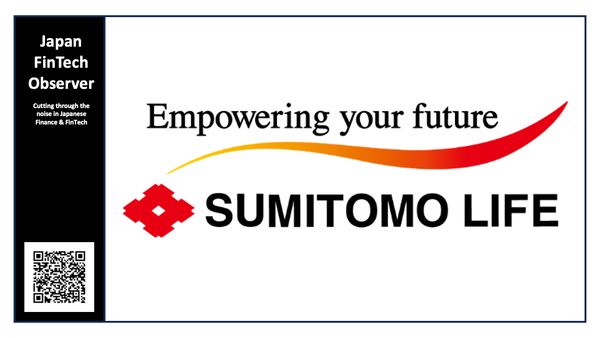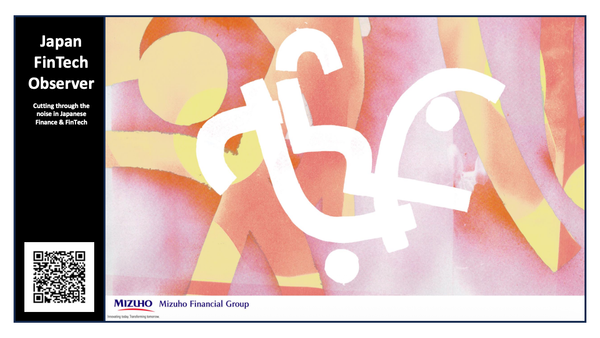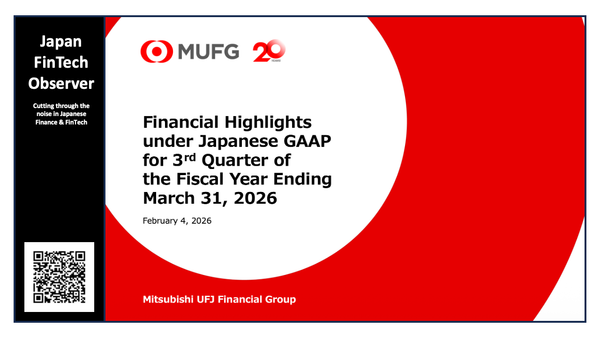SBI Holdings Second Quarter & Half-Year Financial Results

SBI Holdings reported financial results for the first half of Fiscal Year 2025 (April 1, 2025 – September 30, 2025) at the end of October. Given the usual comprehensive reporting (150+ pages), the following article aims to extract the key updates.
I. Consolidated Performance Overview
SBI Holdings reported record-breaking performance for the first half of FY2025, driven by strong growth across most segments, particularly Financial Services and PE Investment.
Key Financial Highlights (IFRS – Year-on-Year Comparison)
Key Segment Performance (Profit Before Income Tax Expense)
- Financial Services Business: Grew +13.0% to JPY 118.0bn, marking a record high. The Banking Business was the main driver, growing +17.1% to JPY 73.6bn. The Securities Business saw a temporary decline (-5.0%) due to extraordinary losses.
- Asset Management Business: Grew +7.8% to JPY 3.5bn, marking a record high.
- PE Investment Business: Experienced explosive growth, turning a prior year loss into a profit of JPY 110.5bn (a massive increase of +1,054.5% in revenue), primarily due to valuation gains on multiple equity holdings.
- Crypto-asset Business: Recorded a slight loss of JPY (0.1)bn (compared to JPY 1.4bn profit previously). This was attributed mainly to a JPY 2.5bn loss associated with the unauthorized outflow of crypto assets owned as company assets at SBI Crypto (which operates crypto asset mining overseas). Performance of B2C2 and domestic exchanges remained solid. SBI Crypto plans to withdraw from its mining business.
- Next Gen Business: Turned profitable, achieving a profit of JPY 2.2bn (compared to a loss of JPY 9.3bn previously), aided by the return to profitability of gumi and contributions from Mynavi (JPY 3.7bn equity in earnings of affiliates).
Dividend: The interim dividend for FY2025 was set at JPY 40 per share, an increase of JPY 10 per share compared to the previous fiscal year's interim dividend.
II. Strategic Initiatives and Mid-Term Vision Progress
The strong 1H performance indicates that the Consolidated Profit before income tax expense target of JPY 500bn set for FY2028 is achievable within the current fiscal year (FY2025), supported by anticipated sales gains (e.g., JPY 141.6bn from SBI Sumishin Net Bank affiliate sales) in 2H FY2025.
1. Accelerating Ecosystem Convergence
SBI is promoting the "convergence" of its ecosystems (Financial Services, Asset Management, PE Investment, Crypto Asset, Regional Revitalization, and Neo-media) to create innovative and highly profitable services.
- Bank-Securities Collaboration (SBI Shinsei Bank & SBI SECURITIES): The collaboration has entered a full-scale phase, resulting in 634,972 total referrals since October 2022. The launch of the SBI Hyper Yokin sweep account (September 2025) has already accumulated over JPY 300 billion in deposits, reflecting strong customer acceptance.
- "Comprehensive Financial Platform" (Super App): SBI Holdings and SBI Shinsei Bank jointly established the SBI Neo Financial Platform to consolidate diverse financial functions into a single platform ("FPaaS"), which will be offered to partner businesses. SBI signed a basic agreement with Chubu Electric Power Miraiz to develop new services utilizing this platform.
- Regional Revitalization & Open Alliance Strategy: SBI Holdings is deepening relationships with regional financial institutions ("Fourth Megabank Concept"). The full repayment of public funds by SBI Shinsei Bank (July 31, 2025) enhances its operational flexibility. SBI Group has alliances with 10 banks and numerous regional financial institutions across various business lines (e.g., SBI SECURITIES with 52 connections, Wealth Advisor with 157 connections).
2. Digital Asset Ecosystem & Token Economy
SBI is positioning itself for the advent of the token economy, leveraging the ecosystems of digital assets and finance.
- Regulatory Environment: SBI highlights that global regulations are progressing (e.g., the US GENIUS Act), but Japan needs prompt regulatory establishment to remain competitive (e.g., separate taxation, lifting the ban on crypto asset ETFs). The appointment of Ms. Satsuki Katayama (who advocated for crypto tax reform) as Minister of Finance under the new Prime Minister Takaichi is seen as a positive development.
- Stablecoins & Trust Banking: SBI intends to promote its Crypto-asset Business centered on Shinsei Trust & Banking (as both issuer and custodian). SBI is pursuing business expansion with both USD-pegged (e.g., Circle’s USDC, Ripple’s RLUSD) and JPY-pegged stablecoins (joint study with SMBC).
- RWA Tokenization: SBI is accelerating preparations for trading services for Real World Asset (RWA) tokens. It has established a joint venture with Startale Group for a trading platform promoting the on-chaining of tokenized stocks and RWAs, and became a partner with U.S. Circle to develop applications on the Arc blockchain.
3. Overseas Expansion and Capital Strategy
- Overseas Contribution: Overseas operations accounted for approximately 12.5% of the Group’s consolidated profit before tax expense for 1H FY2025, falling short of the 30% target for FY2028.
- Strategic Investments: SBI is expanding alliances in Europe (Solaris SE, Sygnum Bank), the US (AI2 Incubator Fund III), and the Middle East (Saudi Arabia and UAE, focusing on fintech/crypto investments).
- Asset Management International Alliances: The Group is forming joint ventures with major global asset managers, including PIMCO, Man Group, KKR, and Franklin Templeton, to offer alternative investment products in Japan and abroad.
- New Capital Strategy: To support expanding alliances and potentially avoid equity dilution, SBI is considering using "share exchanges" (stock-for-stock acquisitions) in the future, utilizing portfolio company shares and operating investment securities as consideration.






